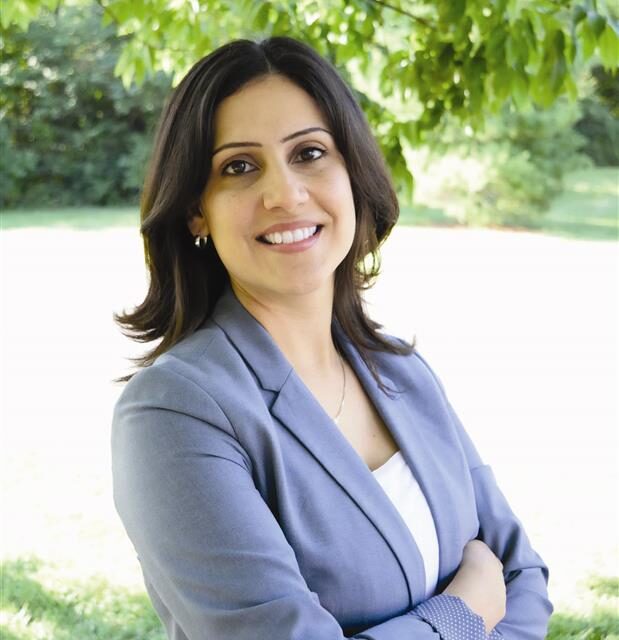Dr. Arelys Madero, associate professor of Criminal Justice, was born and raised in Venezuela and came to the United States to pursue a graduate degree with the dream of teaching at the college level in her home country. When she completed a master’s and doctoral program at the University of Cincinnati, her plans to return home changed as the socio-political situation in Venezuela deteriorated and she did not feel safe to return. With an opportunity to teach at Northern Kentucky University, she continued to chase her dream of teaching, just in a new location. Five years ago, she and her husband joined the faculty at Shippensburg University. The United States is now home to her family including daughters, Sofia (3-years old) and Amaia (7-years old) and she’s thankful to have her dream job in her new home.
What inspired you to go into the field of criminal justice? I have always been intrigued by the causes of deviant and criminal behavior. Right after graduating from college, I took a job at a state prison in my home country of Venezuela, and that experience showed me that I did not enjoy working with inmates. It wasn’t until years later, during my PhD, that I found my true passion for the study of victims. Criminal justice has so many career options but what they all have in common is that we can help people in the moments of their lives when they need it the most. That is what I find most inspiring with this job.
What is your research area of interest and what do you teach? My main area of research is victimology, the study of victims of crime. It’s different than traditional criminal justice which tends to focus more on the offender. At the undergraduate level, I teach our Victimology course and the Race, Ethnicity, and Crime course. At the graduate level I teach Advanced Criminology Theory, Research Methods, and Quantitative Analysis.
What is your current research project? My most recent project is a collaboration with colleagues from various universities where we investigate the use of trigger warnings in the college classroom. Trigger warnings are verbal or written notices alerting to the unique nature of course content that can be traumatic or sensitive. Faculty may decide to provide suitable accommodations to students who are triggered by certain trauma-related topics, but not all faculty do that. There is controversy regarding the use of trigger warnings because some critics argue that we must expose college students to content, no matter how sensitive that content. It has been interesting to learn through this project that trigger warnings are quite common among criminal justice and criminology faculty.
Are there any common misconceptions about criminal justice that you hope to correct or change? Some people think that criminal justice is for students interested in going into law enforcement. But the reality is that there are so many career opportunities, and many do not entail working with perpetrators of crime. That is the biggest misconception I have been seeking to change. Anyone who knows a victim of crime can understand the importance of providing victims and survivors with support systems. I want the younger generations to know that they can fulfill their passion for human service through a career in victimology or victim services.
What’s your favorite part of teaching? When students begin to make connections between ideas, theories, or concepts on their own. When they start having those “aha” moments. When they start seeing the relevance of what we teach them in places outside the classroom. To me, that’s the true measure of an education that makes a practical impact.
You recently completed the university’s President’s Leadership Academy (PLA). How did that experience impact you? Completing the PLA was a fantastic opportunity for me personally and professionally. Not only was I able to meet new colleagues across units and departments in the university, but I gained a deeper understanding of how the university operates. Teaching faculty like myself are often so immersed in their courses and their students that they do not know much outside their own departments. I learned about the challenges we face as a university, but also the significant potential we have. There is so much good happening at Ship! PLA gave me tools and connections to support the university for years to come.


